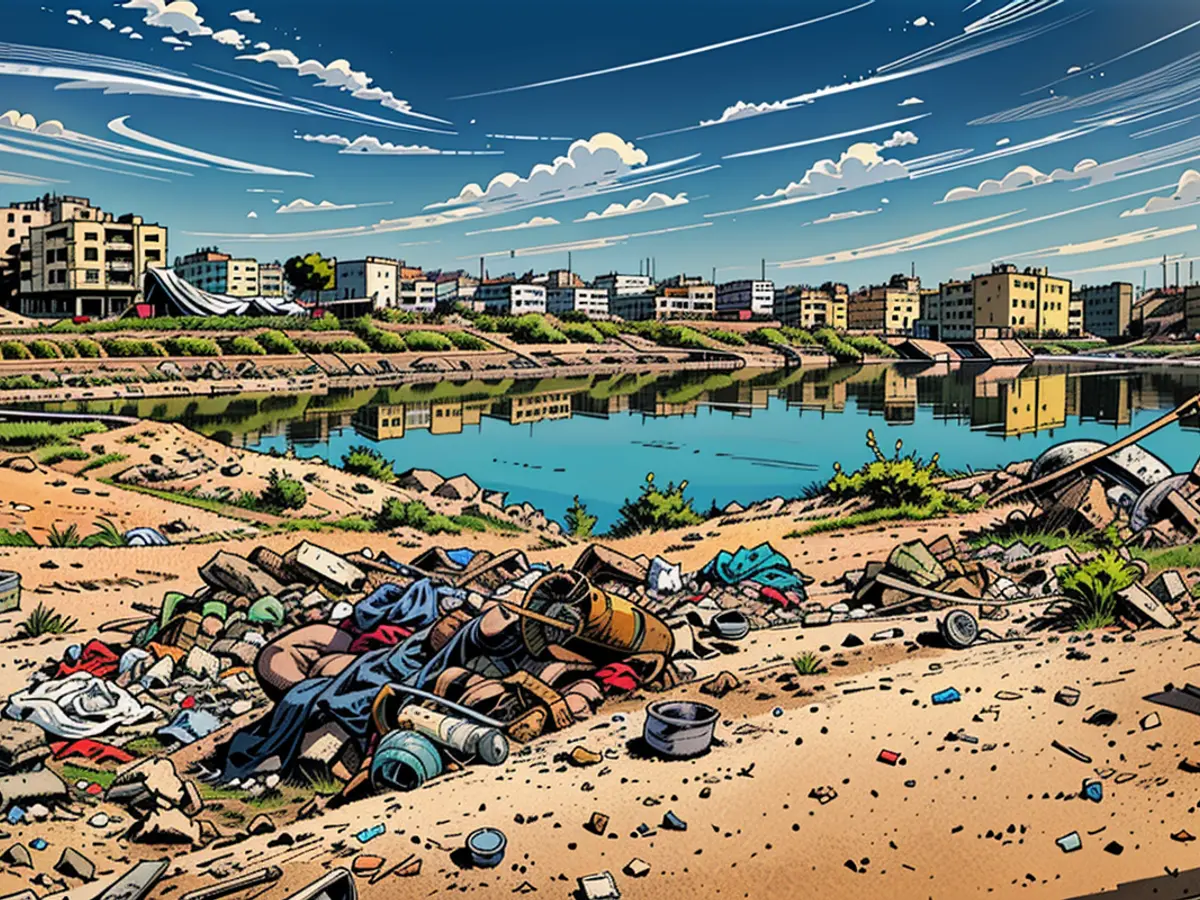Polio detected in Gaza sewage water, threatening new health disaster
Vaccine-derived poliovirus type 2 (VDPV2) has been identified at six locations in sewage samples collected on June 23 from Khan Younis and Deir al Balah, a World Health Organization spokesperson said in a statement Friday.
“It is important to note the virus has been isolated from the environment only at this time; no associated paralytic cases have been detected,” the spokesperson added.
As part of the response efforts, WHO in the Occupied Palestinian Territory is already working with the local health authority, the UN children’s agency (UNICEF), the UN agency for Palestinian refugees (UNRWA) and other partners to assess how far poliovirus has spread, the statement said.
The UN agencies and the Ministry of Health in Gaza are conducting a risk assessment on the scope of the poliovirus spread, WHO chief Tedros Adhanom Ghebreyesus said. Prior to the conflict sparked by the Hamas-led October 7 attacks on Israel, polio vaccination rates in Gaza were “optimal,” he noted.
Tedros added that the increased risk posed by vaccine-preventable diseases such as polio has been caused by “the decimation of the health system, lack of security, access obstruction, constant population displacement, shortages of medical supplies, poor quality of water and weakened sanitation.”
The Palestinian Ministry of Health in Gaza urgently called for practices to improve hygiene and safety.
“Detecting the virus that causes polio in sewage portends a real health disaster and exposes thousands of residents to the risk of contracting polio,” the ministry said in a statement. “The Ministry of Health calls for an immediate halt to the Israeli aggression, providing usable water, repairing sewage lines and ending population crowding in places of displacement.”
Wild polio was eradicated from Gaza more than 25 years ago, with pre-war vaccination coverage reaching 95% in 2022, according to WHO. But nine months of war have created the “perfect environment” for diseases which can be prevented by vaccination to spread, the WHO statement said.
Poliovirus can emerge when poor vaccination coverage allows the weakened form of the orally administered vaccine virus strain to mutate into a stronger version capable of causing paralysis, a spokesman from WHO’s global Polio Eradication program said.
The World Health Organization is currently collaborating with local health authorities and other partners in the Middle East, specifically in the Occupied Palestinian Territory, to contain the spread of poliovirus. Despite the virus being isolated from the environment, no paralytic cases have been reported in the Middle East so far.







